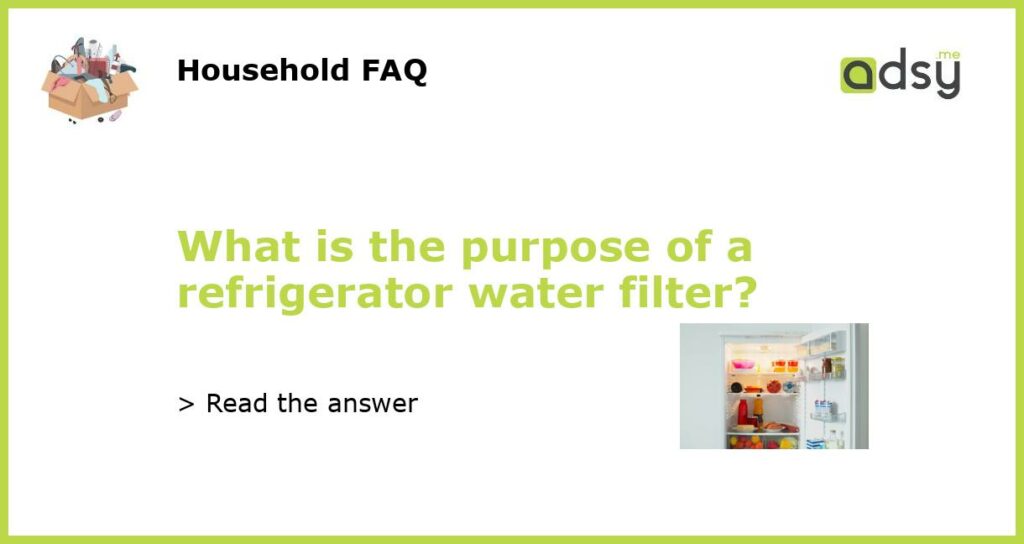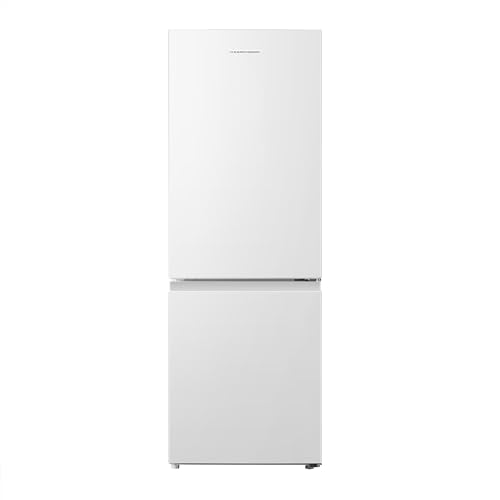The Importance of Refrigerator Water Filters
Refrigerator water filters are an essential component of your home’s kitchen. They play a crucial role in ensuring that you and your family have safe and clean drinking water at all times. The primary purpose of a refrigerator water filter is to remove impurities and contaminants from the water supply, making it healthier and more refreshing to consume.
Filtering Out Impurities
The main reason why refrigerator water filters are installed is to filter out impurities. These impurities can include microorganisms, bacteria, viruses, heavy metals, sediments, and harmful chemicals such as chlorine. It is essential to get rid of these contaminants to prevent health issues and ensure the purity of your drinking water.
Microorganisms, Bacteria, and Viruses: Refrigerator water filters are designed to eliminate these harmful pathogens by using activated carbon filtration. The carbon filters have a porous surface that traps microscopic contaminants, preventing them from flowing through with the water.
Heavy Metals: Some water sources may contain high levels of heavy metals like lead, arsenic, and mercury. If consumed regularly, these metals can have damaging effects on human health. Refrigerator water filters with activated carbon or reverse osmosis (RO) technology can effectively remove these heavy metals from your water supply.
Sediments and Chemicals: Sediments such as sand, silt, and rust particles can make your water look and taste unpleasant. Refrigerator water filters can eliminate these particles and improve the clarity of your drinking water. They also remove harmful chemicals like chlorine, which is commonly used in municipal water treatment. Chlorine can give water an unpleasant taste and odor, and long-term exposure to it can have adverse effects on health.
Enhanced Taste and Quality
Another purpose of a refrigerator water filter is to enhance the taste and quality of your drinking water. By removing impurities, these filters can significantly improve the flavor of the water. The activated carbon in the filters absorbs any unpleasant tastes and odors, leaving you with fresh and clean water that you can enjoy.
Drinking water that has gone through a refrigerator water filter also has a higher quality and is generally safer to consume. By removing contaminants, the filter ensures that you and your family are not exposed to harmful substances that can affect your health over time. Clean, filtered water can also be used for cooking, making beverages, and other household uses, resulting in better-tasting food and drinks overall.
Protecting Appliances and Saving Money
A refrigerator water filter also helps to protect your appliances, such as the ice maker, water dispenser, and the refrigerator itself. The filter prevents sediments and impurities from clogging the internal mechanisms, which can lead to damage and costly repairs. By keeping the water supply clean and free from contaminants, the filter extends the lifespan of your appliances while ensuring optimal performance.
Regularly replacing the refrigerator water filter also helps you save money in the long run. Over time, filters become clogged with impurities, reducing their effectiveness. Unclean filters can lead to slower water flow, decreased water pressure, and compromised water quality. By replacing the filters as recommended by the manufacturer, you can maintain optimal filtration and avoid costly repairs caused by a malfunctioning water supply system.
Environmental Benefits
Using a refrigerator water filter is not only beneficial for your health and appliances but also for the environment. By filtering your water at home, you reduce the need for single-use plastic water bottles. Bottled water production contributes to plastic waste, pollution, and energy consumption.
With a refrigerator water filter, you have an eco-friendly solution that allows you to enjoy clean and refreshing water without creating unnecessary waste. By making this simple switch, you contribute to a more sustainable lifestyle and help protect the planet.




![COMFEE' RCD93WH1(E) A Under Counter Fridge, 93L Fridge with Cooler Box, Interior Light, Removable Glass Shelf, Reversible Door Hinge, Adjustable Legs, White [Energy Class F]](https://m.media-amazon.com/images/I/51SGR0VK5ZL.jpg)

